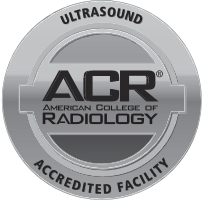Abdominal Ultrasound
![]()
Abdominal Ultrasound
Abdominal Ultrasound provides real-time images of the major organs of the body. Abdominal Ultrasound may be used to diagnose abdominal aortic aneurysms, renal masses, gallstones, pancreatic masses, liver disease, splenic infections or common bile duct obstructions.
An Abdominal Ultrasound takes 30 minutes and must be performed on a fasting patient. Patients should not eat or drink 6-8 hours before the exam.
Indications for an Abdominal Ultrasound
- Ascites (Fluid in Abdomen)
- Fatty Liver
- Elevated Bilirubin/Jaundice
- Nausea
- Vomiting
- Abdominal Pain
- Gallstones
- Gas Pain
- Urinary Obstruction
- Abnormal Liver Function Test
What Ultrasound Can Determine
- Gallstones
- Kidney Stones
- Renal Cancer
- Liver Cancer
- Pancreatic/ GB Cancer
- Hydronephrosis
- Mass or Cyst
- Pancreatitis
- Spleen Enlargement
- Liver Enlargement
- Cirrhosis
- Aortic Aneurysm
Upper or Lower Extremity Arterial Ultrasound
![]()
Upper or Lower Extremity Arterial Ultrasound
An average of 1 in 20 people over the age of 50, or as many as 10 million Americans, suffer from peripheral arterial disease. This disease is caused by atherosclerosis, the hardening of arteries. The slow process of plaque buildup on the artery walls over time causes a narrowing of the vessel walls, decreasing the blood flow to the muscles in the legs. A simple Arterial Duplex Ultrasound will detect this plaque in its early stages and prevent further damage.
Peripheral vascular disease, if undetected, may lead to gangrene and ultimately amputation or death. The Upper or Lower Extremity Arterial Ultrasound is a noninvasive, simple 30-minute exam that can prevent this.
Indications for an Arterial Ultrasound
- Leg Pain
- Rest Pain
- Abdominal Aneurysm
- Pre/Post Surgery
- Diabetes
- Patient is a Smoker
- Non-Healing Ulcer
- Claudication
What Ultrasound Can Determine
- Peripheral Vascular Disease (PVD)
- Popliteal Aneurysm
- Bakers Cyst
- Stenosis
- Arterial Blockage
Carotid Ultrasound
![]()
Carotid Ultrasound
Carotid Ultrasound is the most common test for diagnosing carotid artery disease. Each year, over 960,000 people in the United States die from heart disease or stroke. Most people who have strokes over age 65 are male. Stroke is the leading cause of death in the United States and a leading disabler of older Americans. The Carotid Ultrasound is a simple exam that may be performed in 30 minutes in your office and could save years on your patients’ lives.
The major risk factors for carotid artery disease are unhealthy blood cholesterol levels, high blood pressure, smoking, old age, insulin resistance, diabetes, overweight or obesity metabolic syndrome, lack of physical activity, and/or a family history of atherosclerosis. Please consider a Carotid Ultrasound if your patients have any of these risk factors.
Indications for a Carotid Ultrasound
- Aphasia
- Amaurosis Fugax
- Syncope
- Lack of Coordination
- Pre Op
- Slurred Speech
- Dizziness and Giddiness
- Carotid Bruit
What Ultrasound Can Determine
- Carotid Artery Disease
- Intimal Thickness
- Trans Ischemic Attack (TIA)
- Cerebral Vascular Attack (CVA)
- Stroke
- Reduced Blood Flow to the Brain
- Subclavian Stenosis
- Subclavian Steel Syndrome
Echocardiogram Ultrasound
![]()
Echocardiogram Ultrasound
An Echocardiogram is an ultrasound of the heart that tests its beating, pumping, and blood flow. Echocardiograms are a wonderful tool for you and your patient and can be used in the diagnosis of valvular stenosis or sclerosis, valvular regurgitation, congenital heart disease, pulmonary hypertension, cardiomyopathy and pericardial effusion.
Heart disease is the leading cause of death for men and women in the United States. Ultrasound is a safe, effective tool that can be used to prevent heart disease for your practice.
Indications for an Echocardiogram
- Chest Pain
- Malignant Hypertension
- Congestive Heart Failure
- Trans Ischemic Attack (TIA)
- Atrial Fibrillation
- Near and Presyncope or Collapse
- Shortness of Breath
- Murmurs
What Ultrasound Can Determine
- Coronary Disease
- Heart Attack
- Congestive Heart Failure
- Congenital Heart Disease
- Valvular Regurgitation
- Aortic Stenosis
- Pulmonary Hypertension
- Pericardial Effusion
Pelvic Ultrasound
![]()
Pelvic Ultrasound
A Pelvic Ultrasound is an efficient and cost-effective way to assess the pelvic organs, which include the uterus, cervix, vagina, fallopian tubes and ovaries. Doppler is also performed in a Pelvic Ultrasound to show blood flow to the major reproductive organs. During a Pelvic Ultrasound, the bladder is also visualized.
Pelvic Ultrasound utilizes real-time imaging and color Doppler to rule out pelvic disease or abnormalities. The exam takes 30 minutes to perform and is best done with the patient prepped with a full bladder.
Indications for a Pelvic Ultrasound
- Pelvic Mass
- Pelvic Pain
- Fibroid
- Endometrial Hyperplasia
- Amenorrhea
- Pelvic Inflammatory Disease
- Urinary Obstruction
- Heavy or Frequent Menstruation
- Irregular Menstruation
- Post Menstrual Bleeding
What Ultrasound Can Determine
- Fibroid Tumors
- Pelvic Inflammatory Disease
- Cysts
- Masses
- Dermoid Cyst
- Ovarian Torsion
- Endometriosis
- Ectopic Pregnancy
- Bladder Cancer
- Cervical Cancer
Renal Ultrasound
![]()
Renal Ultrasound
The Renal ultrasound study is an accurate and non-invasive way in which to examine the function of the kidneys. The kidneys play an important role in the removal of waste in your body. Your renal system consists of the kidneys, ureters and bladder. A renal ultrasound can detect anatomic issues to ensure renal and bladder health. It can also detect cysts, masses, stones or blockages of the ureters and/or the kidneys.
Renal ultrasound uses real time imaging and color Doppler to evaluate the renal system. It takes less than 30 minutes and there is no prep required for a renal ultrasound.
Indications for a Renal Ultrasound
- Flank Pain
- Hematuria
- Kidney Stones
- Proteinuria
- Hydronephrosis
- Bladder Infection
- Kidney Infection
What Ultrasound Can Determine
- Kidney Stones
- Hydronephrosis
- Masses or Cyst
- Dilated Ureter(s)
- Non-excavation of the Bladder
- Renal Carcinoma
- Acute Renal Failure
Renal Artery Ultrasound
![]()
Renal Artery Ultrasound
The Renal Artery Duplex Ultrasound study is an accurate, non-invasive and cost-effective way in which to examine the function of the kidneys. The kidneys play an important role in regulating blood pressure by secreting a hormone called renin. If the renal arteries are narrowed or blocked, the kidneys are unable to effectively control blood pressure. Persistent or severe high blood pressure is a common symptom of renal artery stenosis.
The Renal Artery Duplex Ultrasound study provides a real-time image of blood flow and accurate velocities of the blood to the renal artery. A Renal Artery Duplex Ultrasound can be performed with no radiation exposure, unlike a CT scan, and at a significantly lower cost than an MRI exam.
Indications for a Renal Artery Ultrasound
- Hypertension
- Atherosclerosis
- Over Age 50
- Diabetes
- Abdominal Bruit
- Small Kidneys
- Chronic Renal Failure
- Acute Renal Failure
What Ultrasound Can Determine
- Chronic Renal Failure
- Renal Artery Stenosis (RAS)
- Masses or Cysts
- Renal Vein Occlusion
- Renal Artery Embolus
- Renal Carcinoma
- Acute Kidney Failure
- Small Kidneys
Scrotal Ultrasound
![]()
Scrotal Ultrasound
The scrotum contains the male reproductive organs consisting of the vas deferens, epididymis, pampiniform plexus, spermatic cord, and the testicles. Ultrasound is the gold standard for examining the testicles with real-time imaging.
Scrotal Ultrasound is an efficient and effective way to examine the scrotal contents. The exam takes 30 minutes and monitors the venous and arterial blood flow. Gray scale ultrasound imaging identifies testicular disease or malformations.
Indications for a Scrotal Ultrasound
- Scrotal Mass
- Orchitis
- Spermatocele
- Torsion
- Varicocele
- Epididymitis
- Hydrocele
- Scrotal Pain
What Ultrasound Can Determine
- Epididymitis
- Testicular Cancer
- Spermatocele
- Varicocele
- Testicular Torsion
- Orchitis
- Hydrocele
Thyroid Ultrasound
![]()
Thyroid Ultrasound
The thyroid is a butterfly-shaped gland that wraps around the front part of the neck just below your Adam’s apple. The thyroid makes hormones that control the body’s metabolism. The hormones produced by the thyroid have an effect on body temperature, digestive and heart functions, and other body processes.
Thyroid Ultrasound is an effective tool that takes less than 30 minutes to assist in the diagnosis of thyroid disease.
Indications for a Thyroid Ultrasound
- Hyperthyroidism
- Hypothyroidism
- Neck Mass
- Abnormal Thyroid Function Test
- Difficulty Swallowing
- Acute Thyroiditis
- Thyroid Mass
What Ultrasound Can Determine
- Thyroid Cancer
- Thyroid Goiter
- Trachea Obstruction
- Parathyroid Mass
- Enlarged Lymph Nodes
Upper or Lower Extremity Venous Ultrasound
![]()
Upper or Lower Extremity Venous Ultrasound
The Upper or Lower Extremity Venous Ultrasound is a diagnostic test used to check the circulation in the large veins in the legs or the arms. This exam shows any blockage in the veins by a blood clot or thrombus with compression of the veins. It can also help to diagnose venous insufficiency in the legs which can cause varicose veins.
Venous Ultrasound uses real time imaging and color Doppler to evaluate the venous system. It takes less than 30 minutes and there is no patient preparation required for a venous ultrasound.
Indications for a Venous Ultrasound
- Leg Pain
- Leg Swelling
- Edema
- Shortness of Breath
What Ultrasound Can Determine
- Blood Clots
- Bakers Cyst
- Venous Insufficiency







